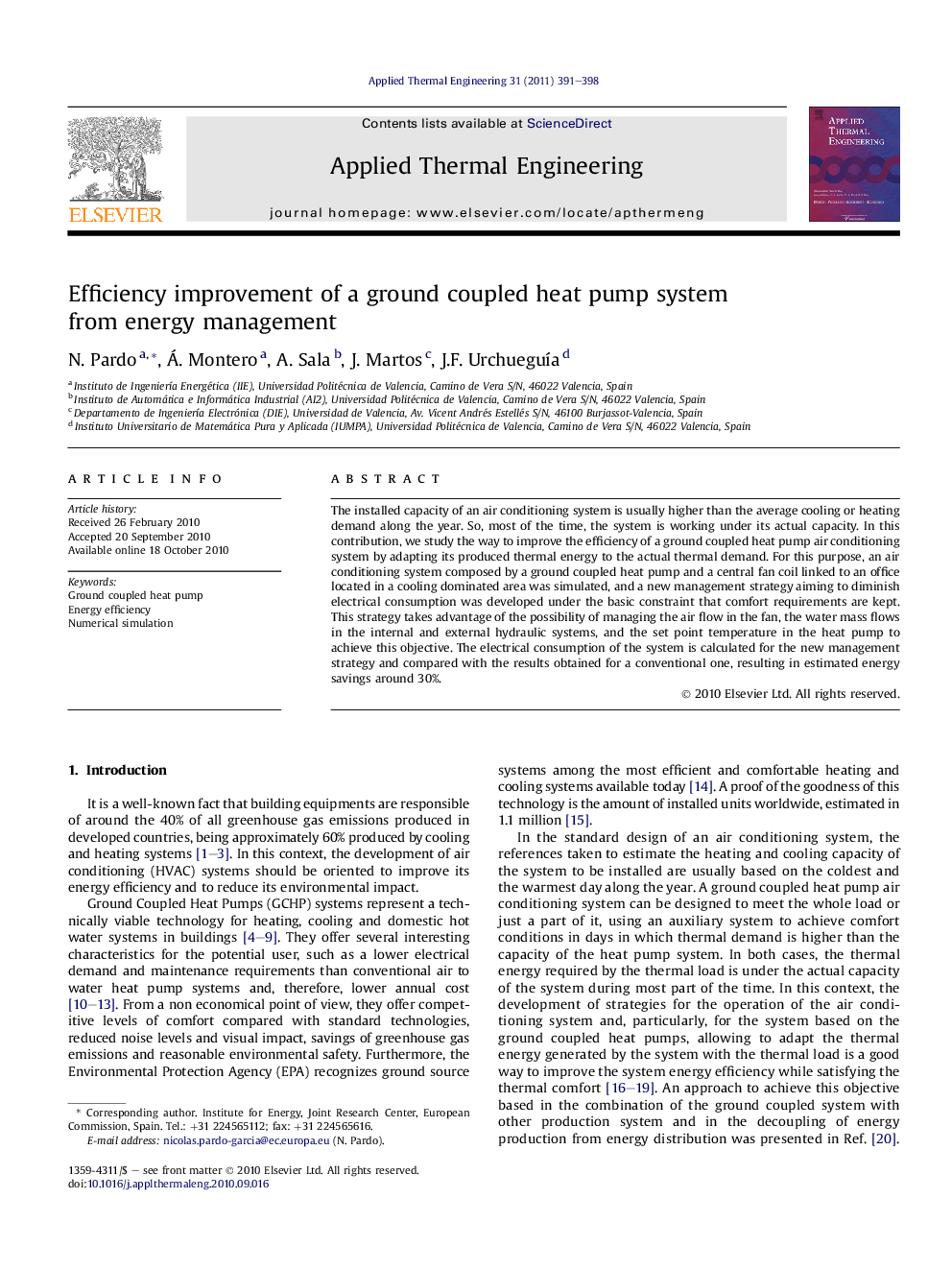| Article ID | Journal | Published Year | Pages | File Type |
|---|---|---|---|---|
| 648056 | Applied Thermal Engineering | 2011 | 8 Pages |
The installed capacity of an air conditioning system is usually higher than the average cooling or heating demand along the year. So, most of the time, the system is working under its actual capacity. In this contribution, we study the way to improve the efficiency of a ground coupled heat pump air conditioning system by adapting its produced thermal energy to the actual thermal demand. For this purpose, an air conditioning system composed by a ground coupled heat pump and a central fan coil linked to an office located in a cooling dominated area was simulated, and a new management strategy aiming to diminish electrical consumption was developed under the basic constraint that comfort requirements are kept. This strategy takes advantage of the possibility of managing the air flow in the fan, the water mass flows in the internal and external hydraulic systems, and the set point temperature in the heat pump to achieve this objective. The electrical consumption of the system is calculated for the new management strategy and compared with the results obtained for a conventional one, resulting in estimated energy savings around 30%.
